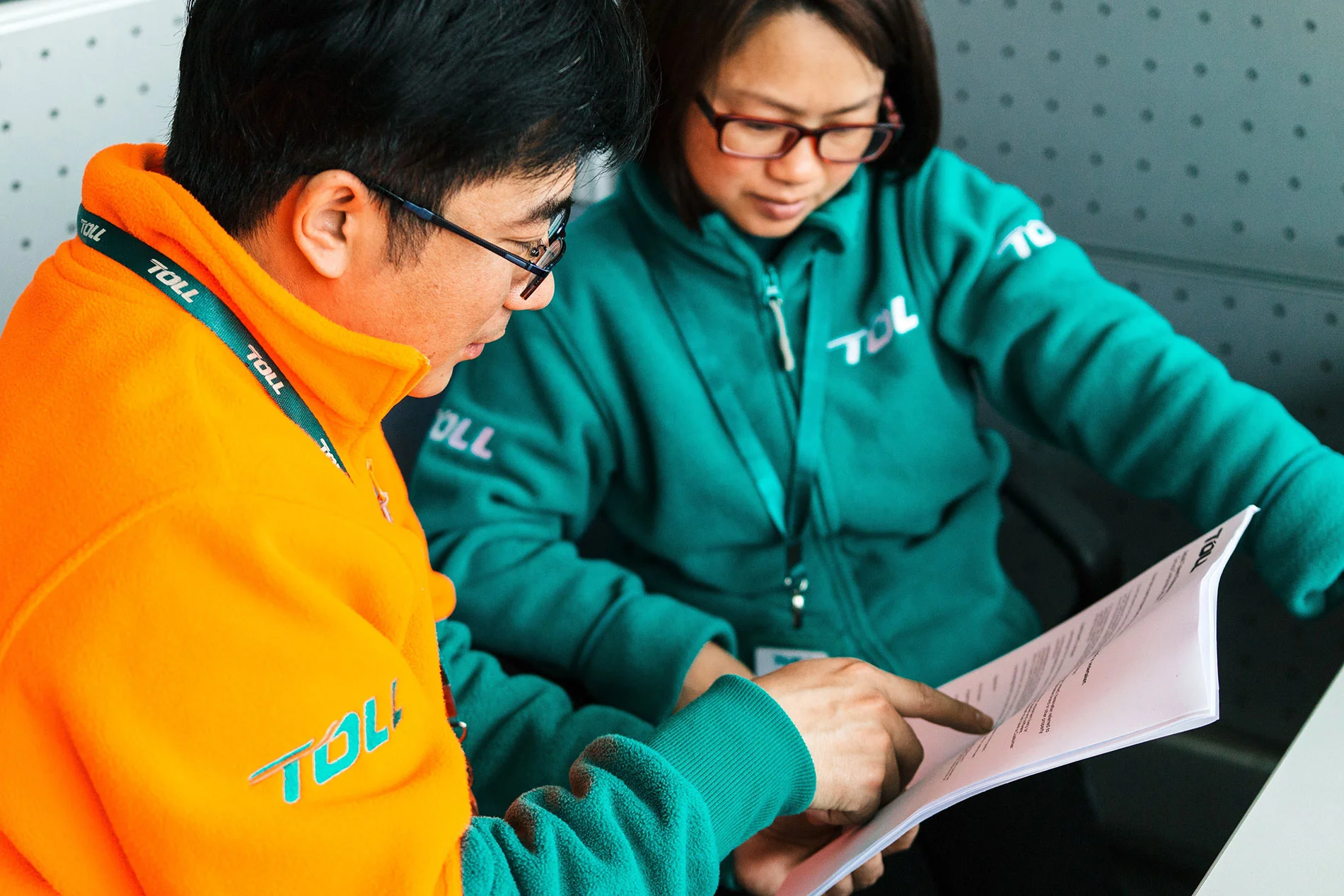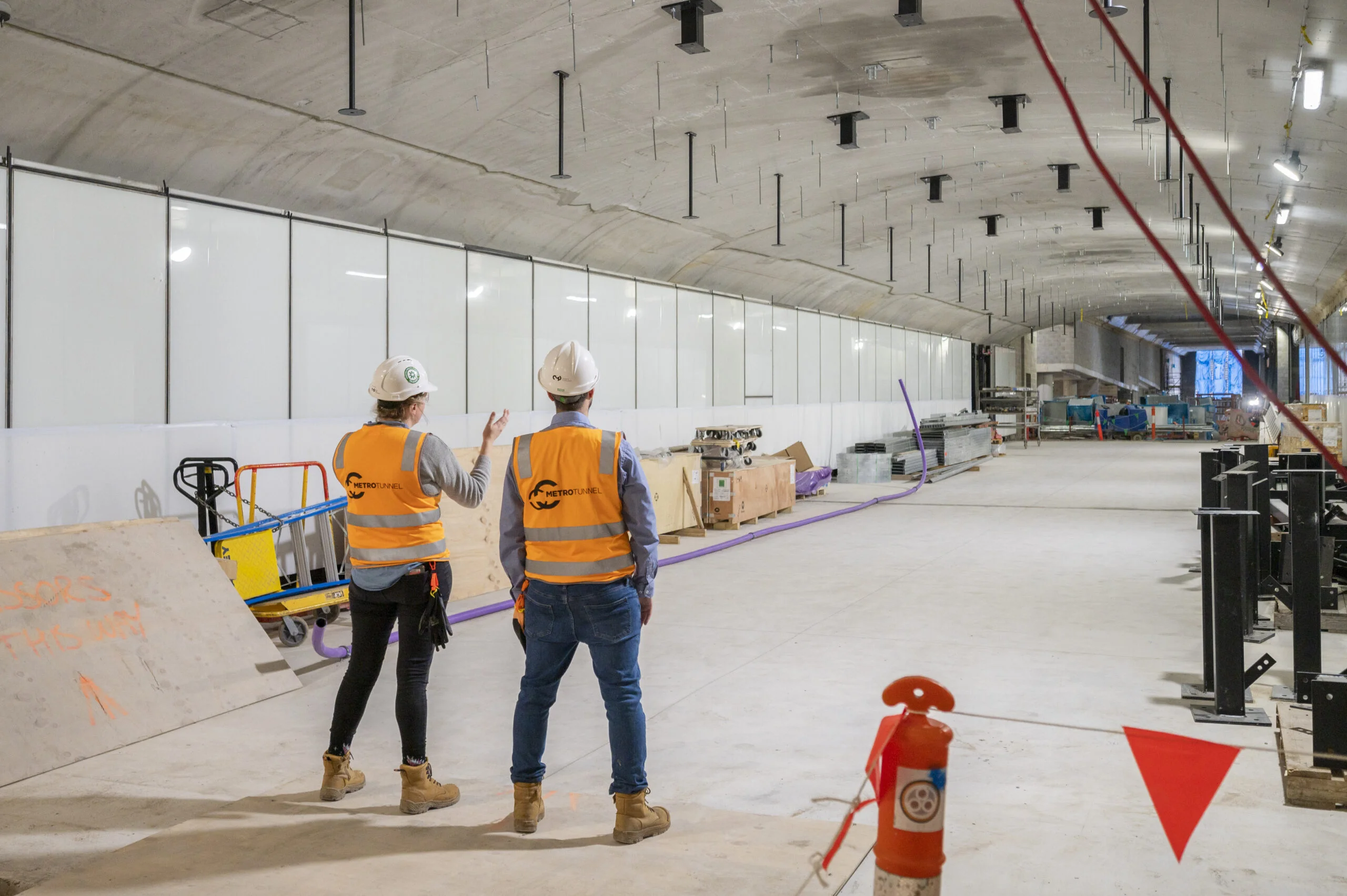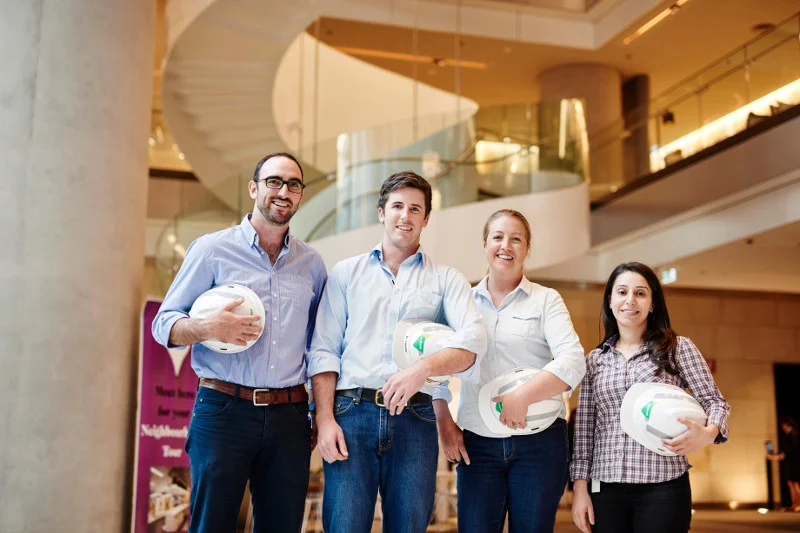Safety in the transport infrastructure and logistics industry has long been synonymous with measures aimed at preventing physical accidents and injuries.
As a growing body of evidence sheds light on the mental health crisis confronting the industry, more organisations are redefining their focus on safety to include mental safety, developing comprehensive strategies to safeguard the mental health and well-being of their workers.
Australia’s transport infrastructure and logistics industry is vital in keeping our country’s wheels in motion, yet fraught with challenges that can have severe impacts on the mental health of those working within it. The high-pressure environment, long hours and separation from support networks while working away from home can take a significant toll on the well-being of its workers.

The need for industry-wide change
Mental illness is common and can have significant impacts on an individual, their work and their relationships. One in five Australians are likely to experience mental health problems in any given year, which means everyday millions of people go to work experiencing mental ill-health. But for those who design, build, maintain and work on Australia’s road networks, the risk of developing mental illness is even higher.
A study from Monash University identified the construction and transport, logistics and supply chain sectors amongst the industries that experience higher rates of suicide, incidence of mental illness and psychological distress.
Sadly, an Australian construction worker takes their own life every second day, with workers in the industry six times more likely to die from suicide than an accident at work. The rate of suicide among young male construction workers is twice the national average, indicating an urgent need for targeted interventions.
The industry’s heightened risk of mental illness and suicide, further compounded by the stigma that can act as a barrier to seeking help, presents a pressing need for community-led models of care that empower individuals where they work – whether on a worksite, in an office or on the road.
“Mental health awareness and training is not a ‘nice to have’, it is essential in ensuring the well–being of your employees and that they are supported,” says Jason McGovern, Business Engagement and Program Manager at Lendlease.
“Everyone sits on the mental health continuum – from poor, fair, good to thriving – and it is normal that this will change on any given day, month or year due to life’s ups and downs. It is how we equip ourselves to deal with this that really matters.”
Many organisations are choosing to take proactive measures to help be part of the solution, with Mental Health First Aid® training providing a blueprint for workers across the industry to provide support to colleagues in times of need.
Empowering the workforce with skills to provide support when it matters most
Mental Health First Aid (MHFA™) training is empowering individuals across the sector to recognise and respond to someone who may be experiencing a mental health problem or mental health crisis. Through an increase in knowledge of mental health illnesses and confidence in providing first aid responses, those trained in MFHA – known as Mental Health First Aiders™ – are helping to break down barriers and open doors to mental health conversations.
The wide-reaching impacts of MHFA training is helping to drive change across the industry:
Increasing skills and confidence in having a supportive conversation about mental health
Understanding how to talk about mental health and having the confidence and knowledge to help someone in need are important skills that any person in the workforce can learn. For many, an initial conversation with a trusted peer can be the catalyst to helping them recognise that something isn’t right – and can act as a much-needed bridge to professional help.
“The reality is in most cases individuals need someone that they can trust to be there so they can vocalise how they are feeling to make it real and seek help,” says Sarah Marshall, Executive General Manager of People, Safety and Sustainability at Fulton Hogan Australia.
This is certainly the case for CYP Design and Construction who is leading the build of Melbourne’s Metro Tunnel megaproject. CYP Design and Construction has trained more than 10% of their 4,000-strong workforce to positive results. Internal surveys indicate that 90% of the organisation’s MHFAiders® say the training was extremely helpful in supporting the mental health and well-being of others. The training has provided additional benefits for helping staff look inward, with 70% saying it was extremely helpful in supporting their own mental health and well-being.
Toll Group, one of Australia’s largest transport and logistics companies, has taken a similar approach in training a portion of their workers, with more than 800 staff trained as MHFAiders across many different roles and sites – including offices, distribution centres, mine sites, on the road, at sea and everywhere in between. The organisation now has six Licensed MHFA Instructors on staff who can be deployed to different sites to deliver training to workers in all different communities, increasing the spread of MHFAiders to ensure help is never far away.
“It’s a proud moment when you can see staff equipped to deal with a critical situation,” reflects Ruth Oakden, Group Wellbeing Manager at Toll. “That’s why Mental Health First Aid training is so integral to our wellbeing strategy. Firstly, it is there to help people who are in crisis, and secondly it helps us develop a robust and resilient workplace on a more holistic level.”
Building capacity for staff across an organisation to play an active role in recognising and responding to mental health problems, and providing that crucial bridge to professional support where needed, is having a positive ripple effect across organisations.

Encouraging open conversations about mental health to reduce stigma
As a predominantly male workforce, the transport infrastructure and logistics industry grapples with high rates of stigma that often act as a roadblock to individuals disclosing and openly talking about mental health problems. Empowering workforces with the confidence to be open about their mental health will go a long way in driving industry-wide change.
Having MHFA training embedded into organisational strategies and policies is playing an important role in shifting and expanding the industry’s narrative around mental health. In addition to helping individuals build their skills and knowledge to recognise and respond to mental health problems, it also giving individuals the tools to have open conversations about and improve discourse around mental ill-health – helping to remove the fear, shame and stigma that once shrouded mental health conversations in the workplace.
“Mental Health First Aid training has paved the way for us to break down barriers and stigma associated with mental health by improving our people’s awareness and understanding,” says Fulton Hogan’s Sarah Marshall.
“Our people now have a better understanding of mental health, which enables them to be more effective in handling issues that may arise and implement proactive measures to address a potential mental illness.”
A roadmap to mental safety across the industry
Redefining safety in the transport infrastructure and logistics industries in Australia means acknowledging that the well-being of workers extends beyond physical safety. By taking concrete steps to prioritise and protect the mental health of workers across the industry, we can create a mentally safer future for those who keep this country moving.
For Sarah Marshall, the training is helping to provide a roadmap for just that. “Mental Health First Aid has helped us create a network of trusted peers for someone to reach out, have a conversation with, and encourage them to seek professional help early.”
“In doing that, we may save someone’s life.”
If your workplace or industry group would like to discuss opportunities regarding MHFA training, please contact our Workplace Engagement Team.


